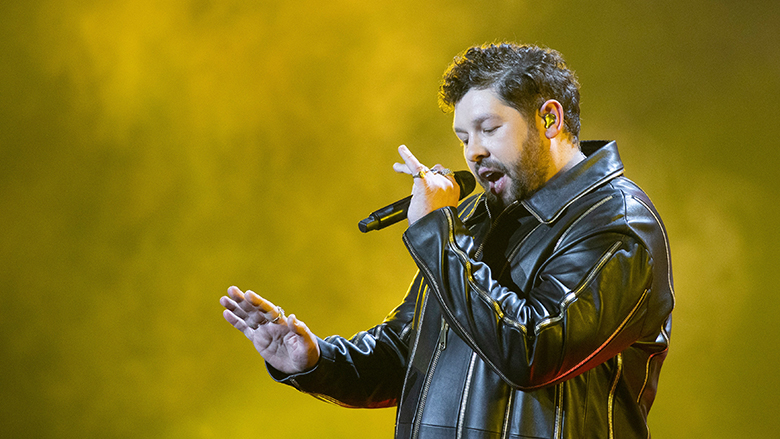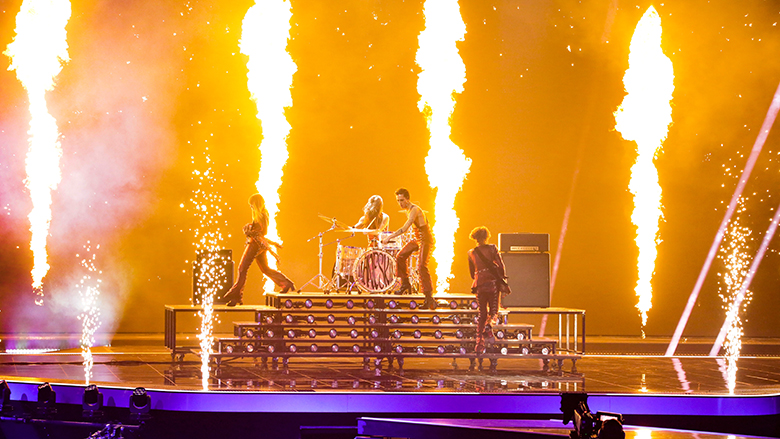The Eurovision song contest was held for the first time in two years. What was it like for first-time non-European viewers?

Photo by Andres Putting, courtesy of the European Broadcasting Union.
The annual Eurovision Song Contest has happened once again, after being cancelled in 2020 due to the COVID-19 pandemic. And the UK, once again, wound up in last place.
“I’m not sure this contest is all about music, since the UK got zero points and it makes no sense,” said Haoran, a first-time watcher of the contest. “The UK song is not that good, but it doesn’t deserve no points at all. So I think there are some political factors that influence the public vote.”
Scoring in the contest is determined by two counts of votes: one from national juries, and the other from viewers voting through their phones. The current system was put in place in 2016.
Over the last decade the UK has been notorious for sending mediocre acts to the contest, and receiving very few points as a result. This year has been a new record for Eurovision: the UK this year has been the first country since 2016 to recieve zeros from both the juries and the popular vote.

Photo by Thomas Hanses, courtesy of the European Broadcasting Union.
The last time the UK won was in 1997, with the song Love Shine a Light by Katrina and the Waves (of Walking on Sunshine fame).
Other records achieved this year were “largest prop ever”: a giant inflatable moon that formed the background of Spain’s act, and “highest frequency vocalization” made by Eden Alene of Israel.
While extremely well-known within Europe, there aren’t that many who are familiar with the contest outside. In recent years the contest has become infamous for being over-the-top. We took this opportunity to get a couple of non-Europeans to watch the contest this year.
Watching Eurovision for the first time are Akshata Ravimurthy from Bangalore, India, and Haoran Lin from Shenzhen, China.
“I watched it just to know what the hype was all about,” says Akshata. “While some performances were surreal, others were actually quite good. Since I’m not aware of the cultural differences yet, some performances made me question if they were pulling a prank on the audience and the competition or were they actually being serious.”
She seemed to like the healthy spirit of competition between the contestants the most. “UK received absolutely no points and from what I’ve heard, it never receives a point. And yet the country keeps sending participants without missing out.”
“I decided to watch a music show because it is about music,” said Haoran. “It’s an exciting show. And I love almost everything in this contest, except Germany’s song sounded pretty weird to me. Italy is the champion, but as a Chinese person and a first-time watcher of Eurovision, I just don’t get why Italy is the winner.”
In accordance with the official rules, the contest will move to Italy next year. Akshata was enthusiastic about watching it again, saying “Why would I miss this sort of entertainment that I’ve missed out on my whole life?” Haoran on the other hand, wasn’t as interested, since his favorite act did not win.
